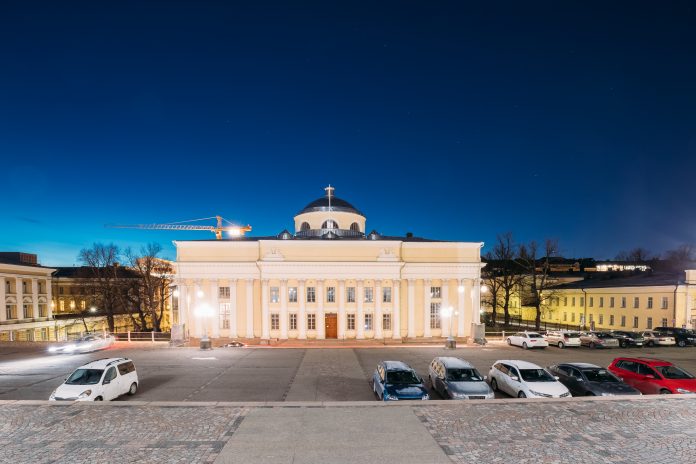Anita Lehikoinen, Permanent Secretary at the Ministry of Education and Culture describes her policy priorities for higher education in Finland
Education is one of the cornerstones of the Finnish welfare society and education and learning achievements are held in high regard. In summary, this stems from an idea that investment in education, research and innovation paves way for both economic growth and individual freedom. For a small nation, such as Finland, it is of the utmost importance to ensure that all talent reserves are used and society seeks to provide equal opportunities for all in order to fulfil everyone’s potential. Therefore, long-term education and research policy aims include equality and equity, enhancing quality and impact and increasing internationalisation in Finnish higher education institutions.
By international standards, Finland has a reputation for having created a top-performing system of basic education. However, inequality, exclusion and differences in learning outcomes are beginning to threaten the Finnish success story. Those born in the 1970s are likely to be the age cohort with the highest level of education in Finland, leaving all others behind.
Finland has drawn up a vision for higher education and research in 2030. The vision is a result of broad cooperation with higher education institutions stakeholders and the Ministry of Education and Culture. Central policy goals are that by 2030, at least 50% of young adults (25 to 34-year olds) complete a higher education degree and 4% of GDP is allocated to R&D to create sustainable growth and more wellbeing. To realise this vision in the coming years, we will increase the provision of higher education, create more flexible and personalised study paths and degrees that will enable lifelong learning in different life situations. Digitalisation and openness will renew teaching, learning, research and innovation activities, as well as HEIs and will open up new channels for effectiveness and quality enhancement. The aim is to build the world’s best learning and study environments with a student-oriented approach.
RDI
Targeted growth of RDI activities also requires a significant increase in the national level of competence and education. In the future, there will be a need for many more highly educated experts and other RDI professionals. This challenges the education system from early childhood education to higher education institutions. The transformation of work and the changing needs for competence in the business community require an increase in the workforce and a more competent workforce. In addition to education leading to a degree, there is a need for diverse opportunities for continuous learning for the entire population. Civics and science education deepen and increase the human resources available in the RDI environment.
Sustainability
We see research and education also as tools for analysing the impacts of rapid societal change and as a means for ensuring that any transition leads to an increase in well-being. Sustainability is fast becoming a central driver for global competitiveness and the wellbeing of citizens, and the economic models for growth are adjusting to this demand. Finland and Europe have significant competitive advantages in modernising our economies, securing the natural environment and improving the health and well-being of citizens. To do so, will require embracing the SDGs whilst further investing in skills, research and innovation and emerging technologies, helping to drive the transition of the economy and society onto a sustainable path.
Climate change, globalisation, urbanisation, the ageing of the population and technological development are all transforming Finland and the world perhaps faster than ever before. In the midst of this transformation, we need policy measures that offer people a sense of security and hope for a better future. Research-based education and training provide the best safeguard against exclusion and lack of prospects.
International researchers
Besides raising the level of competence and education domestically, Finland must be more attractive to international researchers, experts and RDI professionals. Work-based and education-based immigration and intersectoral mobility must be facilitated. Our competence and R&I environment must also attract international research funding and investments from outside our borders. Finland’s attractiveness is equally affected by services that increase the functioning of everyday life, such as healthcare, daycare services and ease of mobility.
COVID-19
Current COVID-19 crises will have a long-term impact on society as a whole and to all its activities and that is why we need a horizontal approach with all relevant sectors contributing to the recovery. Appreciation of education, science and research has increased. The wider public relies on schools and universities to provide solutions and innovations for the post-crisis situation. High quality, inclusive education and research are essential in recovering from the crisis. Investing in human capital and education is the best “vaccine”, if I may say so, to boost societal resilience in Finland and all over Europe.











